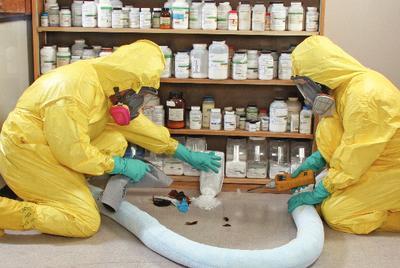How To Handle Chemical Spills & Cleanups
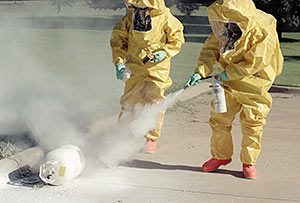 FAST-ACT is designed for liquid and vapor chemical releases, but the chemicals it attacks does not need to be limited to what we traditionally think of as a chemical spill. Toxic and noxious chemicals can come from a variety of sources such as waste water, decomposition, household chemicals, and animals.
FAST-ACT is designed for liquid and vapor chemical releases, but the chemicals it attacks does not need to be limited to what we traditionally think of as a chemical spill. Toxic and noxious chemicals can come from a variety of sources such as waste water, decomposition, household chemicals, and animals.
Since FAST-ACT can be applied to liquid spill or vapor release enabling Emergency Responders to utilize one system when faced with a wide variety of known or unknown chemical hazards it can be used to help with cleanup in some pretty unusual circumstances. We wanted to share a few of the most interesting situations where FAST-ACT has been used:
Dead bodies in vehicles
Unfortunately, people sometimes die in their vehicles. This can be accidental or intentional, but either way, the odors of decomposition need to be addressed. FAST-ACT Pressurized Cylinders have been used to decontaminate the odors. By dispensing FAST-ACT through this manner, the powder disseminates quickly and can flood the entire enclosed space quickly and rapidly. In addition to knocking down the odors, the FAST-ACT powder helps soak up decomposition fluid. This is probably the most unfortunate use of the product, but we are happy that this is a tool that can make this cleanup process easier for the responders.
Skunks in crawl spaces
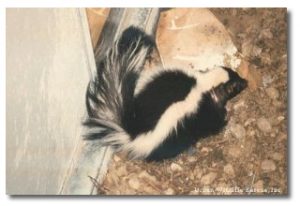 Skunk odors are difficult to mitigate even for restoration contractors. We often get calls about animals dying in the crawl spaces below people’s homes. An animal crawl in there dies, and the odors become strong but eventually dissipate. When it comes to a skunk, the odor can last and last. The thiol-based odor of skunk spray can linger in the air for a long time and is difficult to remove. FAST-ACT Pressurized Cylinders can be used to fog the air space of the crawl space and since FAST-ACT is made of safe metal oxides, it can be left in place to capture and neutralize the odors.
Skunk odors are difficult to mitigate even for restoration contractors. We often get calls about animals dying in the crawl spaces below people’s homes. An animal crawl in there dies, and the odors become strong but eventually dissipate. When it comes to a skunk, the odor can last and last. The thiol-based odor of skunk spray can linger in the air for a long time and is difficult to remove. FAST-ACT Pressurized Cylinders can be used to fog the air space of the crawl space and since FAST-ACT is made of safe metal oxides, it can be left in place to capture and neutralize the odors.
Chemicals in waste water cleanup
After natural disasters such as floods, teams of emergency responders and restoration contractors come together to help communities get back to normal. Waste water can be contaminated with a variety of pollutants, including chemicals. FAST-ACT powder has been used to soak up residual contaminated chemicals and waters to make the job site safer.
Odors in warehouses
Large open air spaces like a warehouse can sometimes be difficult to air out after a chemical release or odor event. FAST-ACT can be fogged into the air to help knock down the odors. This can be common after chemical fires or even the combustion of synthetic materials. FAST-ACT makes quick work of this smelly situation.
Illegal disposal of household chemicals
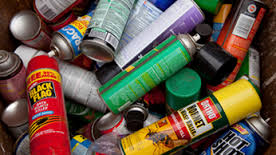 Some of the more common uses of FAST-ACT involve people improperly disposing household chemicals into dumpsters. When these products packages fail and the liquids mix together, some very dangerous chemical concoctions can form and release vapors. First Responders arrive on the scene and have no idea what the starting chemicals are or what they have formed. This is a perfect daily occurrence type of use of FAST-ACT. A FAST-ACT cylinder can be deployed to knock down the vapors and contain and/or neutralize the liquid chemicals. These are particularly dangerous situations as illegal disposal of household chemicals into dumpster often occurs in more populated and urban areas where unsuspecting people may encounter an incident.
Some of the more common uses of FAST-ACT involve people improperly disposing household chemicals into dumpsters. When these products packages fail and the liquids mix together, some very dangerous chemical concoctions can form and release vapors. First Responders arrive on the scene and have no idea what the starting chemicals are or what they have formed. This is a perfect daily occurrence type of use of FAST-ACT. A FAST-ACT cylinder can be deployed to knock down the vapors and contain and/or neutralize the liquid chemicals. These are particularly dangerous situations as illegal disposal of household chemicals into dumpster often occurs in more populated and urban areas where unsuspecting people may encounter an incident.
Decontamination of shipping containers
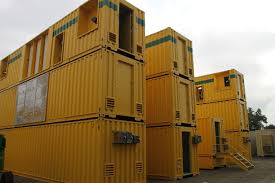 FAST-ACT has been used to mitigate odors in shipping containers overseas. Containers that have chemical package failures or even intentional fumigants can be hard to completely clear out and neutralize. FAST-ACT can be quickly deployed to neutralize a variety of chemical compounds and flood the void spaces in filled or empty shipping containers.These are just a few of the common, but not often thought of, uses for FAST-ACT. If you have used FAST-ACT in an unusual circumstance, we would love to hear about it.
FAST-ACT has been used to mitigate odors in shipping containers overseas. Containers that have chemical package failures or even intentional fumigants can be hard to completely clear out and neutralize. FAST-ACT can be quickly deployed to neutralize a variety of chemical compounds and flood the void spaces in filled or empty shipping containers.These are just a few of the common, but not often thought of, uses for FAST-ACT. If you have used FAST-ACT in an unusual circumstance, we would love to hear about it.

